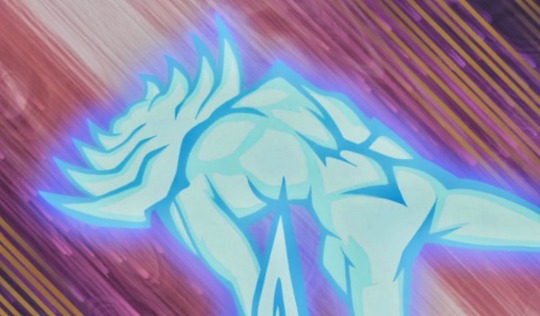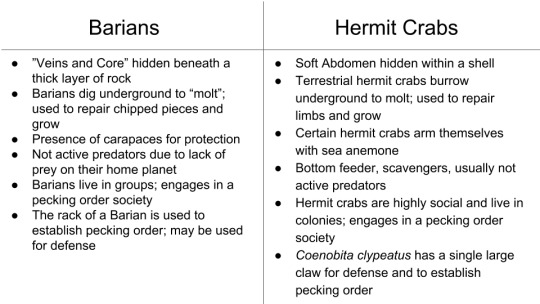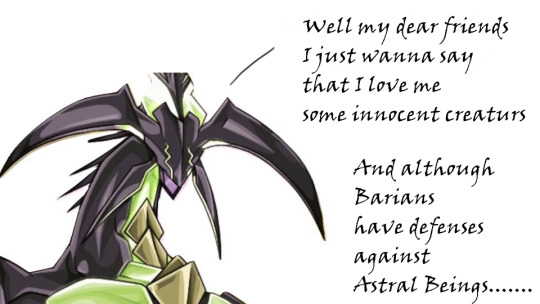#being wholly unaware of the complexities of life and living is kind of comparable to the fake existence of the lm holograms to me
Explore tagged Tumblr posts
Text
more 🛌
#ok so living memory and s9 are obviously not the same. the people are obviously very very different#but i think the reason why none of it landed for me is because they feel too similar in ways i dont personally enjoy#the people of lm arent actually alive but. the people of s9#simply dont have any concept of the breadth of the human experience? to me anyway grief and loss are fundamental to existence#being wholly unaware of the complexities of life and living is kind of comparable to the fake existence of the lm holograms to me#because it's something so integral to the experience of . being alive#that it's hard to... idk#maybe this is the intent in which case neat + hope it gets expanded on in the patches#maybe the arcadion#but. anyway. i guess it's thought provoking#i also dont really know what to think of the mirroring of emet's philosophy in lm#because in this case it is literally true#but are we supposed to feel like it isnt?? bc of the parallels here?#these people are not people and are directly correlated to the suffering of MY people so it is morally fine to get rid of them#<- is this us or ascians#IRS JUST WEIRD. IT'S SO WEIRD. Are they cooking ❓❓ i guess we'll see
1 note
·
View note
Text
Hot take: The Barians are the only innocent creatures in all of yugioh
You’re probably wondering what I mean by this, but I have a perfectly sound explanation.
Look at these comparisons.

Notice anything peculiar? Let’s look a little closer.

That's better.
For those unaware, you may notice that the Barians lack a “mouth”. A mouth is “the opening in the lower part of the human face, surrounded by the lips, through which food is taken in and from which speech and other sounds are emitted.”
Why is this important? Well, because a mouth is an essential piece of the body part to engage in the act of Vore. Since Barians lack the ability to vore due to their own anatomy, they are unable to vore ever. In fanart or in the show, these angels are incapable of being involved in any of that stuff. They’re completely in the safe zone, they’re untouchable as far as the show puts them because you can’t do anything with these guys in THAT specific situation.
BUT WAIT, i hear yall typin away with a rebuttal
With the the introduction of Vrains, there exist another species of creatures without mouths—the Ignises.

Examining the images above, this other unique species also lack these crucial mouths, so you could argue that there are 2 Yu-Gi-Oh groups that are entirely sinless. And this is a fair argument without the context of what the Ignises could do.
But could that could they do exactly?



These images say it all. They could absolutely do that within the canon of yugioh.
So without a doubt, Ignises have the wholly ability to vore other creatures with ease. And this isn’t a one-off thing either, like they did it once and that was it. Ai is shown to have done this on multiple occasions within LINK VRAINS, his homeworld, presumably in a natural form. It is safe to assume that the Ignises absorb data and dismantle prey like this.
Knowing this, Barians ARE the only creatures incapable of voring.
But I hear you screaming. “But Dyzarc, you cranky dragon you, whadda bout anal vore? Cock vore? Absorption! Plus they have HUMAN forms, too. WITH MOUTHS which means the Barians are fully capable of eating! Theyre no different than any other ygo char!”
You could make those arguments, but I also have several points to refute this.
First, the human forms.
You could say that their human forms exist so that they can vore in that sense. That’s a very reasonable assumption.
And yes.

Yes, they could do that.
Yet, human form isn’t really Barian. It’s kind of off-canon, in a sense. They only took that form because Earth is hazardous to their bodies and they cannot maintain their true forms in that unnatural state. Within the closed system of their own environment (or Barian World), which is what I care about, the Barian species does not naturally have a mouth or a human body and therefore cannot partake in that act, canon or otherwise.
Furthermore, if a person wants to draw or write vore involving a Barian as the predator, they simply cannot do it. They must turn the Barian into a human or face the simple fact that Barians cannot vore (or a third option*).
*Theoretically, you could slap a mouth onto them or imply that a mouth exists underneath their muzzle, which only reveals itself when the Barian needs it. However, this is no different than giving a snake tiddies or putting legs on a shark just to fulfill a kink.
Secondly, I’ll focus on the other vore methods by showing pictures of some raw Barian crotches.

Now I may be blind as an olm, but they are clearly naked around the groin area. They lack any visible extremities that could be considered an anus or a cock too. Unless their anatomy works similarly to reptiles as in these organs are hidden behind a thin layer of rock around their crotch and only protrude when it is needed, they lack any organs that can perform cock or anal vore.
Excluding their physical appearance, Barians are canonically born from a circumstance other than, say, laying eggs or live birth or asexual reproduction. Meaning if they DO have those body parts, it’ll be a vestigial structure with no other purpose than to sit there and look stalactitey, probably kinda gross-looking considering what they are.
Of course a “cock” could function like the giant claw of a fiddler crab, where it’s mainly just for show to prove who has the biggest one (and so deserving of their territory, which is why Nasch is the leader. I’ll get into this later on why this could be the case) as well as to help them fight, find a mate, or exert their dominance.
Also, although I do not believe this image represent the entirety of Barian physiology

It is most likely that their insides consist mainly of veins and a... heart?? A star fragment, ball of spike? Whatever the case, I don’t see a stomach pouch nor do the Barians have a reason to have such a thing. The lack of a mouth and stomch makes sense in the “overarching picture” of how a Barian functions. Think about it from a human perspective. Why do we eat? Humans require food in order to produce energy to survive, grow, and reproduce, plain and simple.
Barians, on the other hand, live in a toxic environment void of life other than themselves. They do not need to eat for there is nothing to eat.
My personal theory is that they don’t require energy through consumption of food items like humans do. They either get it from photosynthesizing since their sun appears to be very close to their planet

Or maybe the "heart” is some sort of radioactive material that supplies them with an ample amount of energy. This powerful energy surges through the body through the help of the “roots” and essentially fuels them with life without the need for the consumption of food. My assumption is that the Barian itself is the roots and hearts, while everything else is just a rocky mass separate from the actual thing (im not gonna go super in-depth into the mind-body dualism thing btw. Just think about as a hermit crab with a shell with the “shell” being made of minerals)
And if we bounce off the idea that the shell is composed of minerals, or a rock, thus being very susceptible to erosion and damage as seen in how Vector broke pieces of his body during one of the duels

They most likely naturally regenerate their body parts by burying themselves deep into the ground so that the Rock Cycle

can repair and grow their forms. See, this process does not require food (which fits into their biology very well) and instead mandates that the Barian digs deep enough to begin the process of melting down its old, damaged body. The heart and roots will remain above the metling point of course; in fact, they play a crucial role in getting the Barian back into its proper shape. After reforming a new shell, the Barian emerges from the ground like a bunch of baby sea turtles, completely healed as long as the “molt” wasn’t disturbed.
Furthermore, this molting cycle could explain the presence of any “cocks” found within the Barian. Molting is extremely energy-consuming and time-consuming; rushing a molt will result in an imperfect shell or other impurities, or death if the impurity is life-threatening. The hardness, body structure, addition of any extra parts, and safe resurfacing, or preventing their new bodies from being damaged as they emerge from the ground, also depends on how well the Barian could alter the temperature and pressure of its surroundings magma (molten rock) to result in the best possible shell. This means that the Barians with poor molts are young and inexperienced while Barians with the best molt are old and experienced.

(hey can u find a better pic, this one isnt a good example)
This also works with how a big “cock” (in an abstract sense) could show their dominance over the other Barians. Or, in this case, the cock is actually extra formations to show off what they are capable of. Regular and large racks, for example, showcase a Barian’s skill at creating a new shell, with the larger and more angular the rack, the more powerful or experienced they are. This is especially difficult to do at a consistence rate, so the Barians capable of carrying it off tend to be on top of the pecking area. Nasch’s abilities to create so many horns means he’s deserving of his spot as the leader.
The Barian pecking order probably goes down the list on how complex—in that they managed to form a perfect, angular rack—their composition is.



Obviously, the chart simplifies what makes a great Barian. The Barian pecking order is much more complex than this.
For example, Mizael, despite the complexity in parts of the body like the face “mask”, is lower in the hierarchy than expected. Why? There is a lot to dissect about Barian physiology, but a peculiar detail is their carapaces. Unlike the rest of the body, which consist of a rocky formation, Mizael’s mask is a carapace. This could be easily seen when Nasch was briefly seen without these carapaces in this scene.

As seen on bodies of these Barians, they appear to have many carapaces which are separate from their main bodies, such as:

These carapace could be involved in the pecking order. The fineness and sharpness of the carapaces gives the illusion of strength (notice that Nasch is covered in carapaces while Durbe practically has none) as well as adding to their maximum size.
But they could also play another vital role... Defense Mechanism
It may sound strange, but I believe that Barians are built solely for defense....
Let’s take a look at a creature whose behavior and structural patterns mimics the Barians, the noble Hermit Crab.

I like to compare these two species due to their essentially parallelism in terms of “form follows function” such as:


(Marine Hermit Crab adding extra defenses to its shell using a venomous sea anemone; similar to a Barian adding sharp carapaces to its already tough, rocky exterior)
Comparing the likeness of the two, it could be assumed that the carapaces provide extra protection over the Barians’ main defense (rocky shell). The carapaces aren’t involved in the molting cycle, of course, due to their complicated build. It’ll be a massive waste to destroy them. Since a Barian could remove them at will, they most likely store the pieces above ground (or above melting point) and molt without them. After they finish molting, they retreive the carapaces. Again, very similar to the molting process of a hermit crab.
It may feel like I am going on a tangent of Barian anatomy rather than focus on their ability, or thereby lack of, to vore, but these details can be used to explain why Barians cannot vore from a historical standpoint.
They cannot vore because they are built like a prey.
Like hermit crabs, they are “bottom-feeders” with no prey of their own—mostly in part due to the absence of food on their home planet. Instead of being designed like a predator with the capability to vore, a mouth, they are the exact opposite in that they have only the defensive capabilities to defend themselves against a predator.
So following this, if there is a strong need for defensive pressure, who is the offensive pressure? A creature cannot be so defensively driven (thick shell, regeneration, armor, etc.) without the presence of a harmful force.
If it isn’t obvious, their predator are the aqueous Astral Beings.

Astral Beings are the perfect Barian predator (perhaps co-evolution played a part in this, or y’kno eliphas just said fuck those guys, lets kill em).
Moving along, not only are they armed with mouths, water is one of the natural forces that could heavily erode rocks, as seen along beaches, rivers, and cliff-sides, into a pile of sand and mud. Barians, with their outermost covering consisting of rock, are especially vulnerable to being broken down by the Astral Beings, exposing their sensitive cores to a likely death.
Their main defense against this is either:
(1) Regeneration, they can drop limbs and endure damage to their shell without fear of death, then repair any injuries during their molt
(2) Armor, the sharp carapaces (made of metals that can withstand water) can ward off potential attackers
A third defense that follows the how Astral Beings vore Barians in a predator/prey relationship could also be seen in the habitat of the Barians, or the presence of the Sea of Ill Intent.

Instead of being made of water, the sea is made of a very strong acid. Why is this important? For any of you that took a chemistry course, the proper technique of mixing acid and water (i.e the Astral Being), you must add acid into the water in that order. The flow of acid into water mixes the two better, preventing a reaction to occur. Adding water into acid, on the other hand, causes the water to react with the acid due to poor initial mixing, causing it to boil and potentially explode.
For this case, the rocky exterior of the Barian allows them to be submerged into the acid without risk of immediate death. Unless the Astral Being wants to harm itself by going into the acid to pursue its prey, they most likely will abandon the prey. If the acid starts to dissolve Barian’s shell (say, the Astral Being attempting to stakeout the Barian) they could regenerate the broken pieces during their next molt.
So not only Barians cannot vore, but they are hapless prey at that!
They are far from helpless prey—in the same way a Rhinoceros is considered a prey animal—but there is plenty of evidence that lead up to the fact they are indeed a prey species.
And the fact that they are the bottom of the barrel scavenger, harmless, unable to be a fearsome predator, only a potential prey at best...
They’re just innocent.
Now you say “Kay Dyzarc, ya made me read a longass analysis on the biology of a bunch of space rocks to prove some sickass vore fantasy of yours. Now what. What was the point.”



Welcome to Zarc n’ Pals, installment 1 baby, strap in for a wild ride
#dyzarc ramblings#zexal#barian biology#uh#barian tag#ignis tag#i dont wanna list all those names#idk when part 2 will be ready#or if yall are ready...
202 notes
·
View notes
Text
The school of life, an emotional education by Alain de Botton
The last few pages of the book. On Wisdom.
—————————————————————
WISDOM
To teach us hot to be wise is the underlying central purpose of philosophy. The word may sound abstract and lofty, but wisdom is something we might plausibly aim to acquire a little more of over the course of our lives, even if true wisdom requires that we always keep in mind the persistent risk of madness and error.
Wisdom can be said to comprise twelve ingredients.
Realism
The wise are, first and foremost, ‘realistic’ about how challenging many things can be. They are fully conscious of the complexities entailed in any project: for example, raising a child, starting a business, spending an agreeable weekend with the family, changing the nation, falling in love… Knowing that something difficult is being attempted doesn’t rob the wise of ambition, but it makes them more steadfast, calmer and less prone to panic about the problems that will invariably come their way. The wise rarely expect anything to be wholly easy or to go entirely well.
Appreciation
Properly aware that much can and will go wrong, the wise are unusually alive to moments of calm and beauty, even extremely modest ones, of the kind that those with grander plans rush past. With the dangers and tragedies of existence firmly in mind, they can take pleasure in a single, uneventful sunny day, or some pretty flowers growing by a brick wall, the charm of a three-year old playing in a garden or an evening of intimate conversations among friends. It isn’t that they are sentimental and naive; in fact, precisely the opposite. Because they have seen how hard things can get, they know how to draw the full value from the peaceful and the sweet - whenever and wherever they arise.
Folly
The wise know that all human beings, themselves included, are never far from folly. They have irrational desires and incompatible aims, they are unaware of a lot of what they feel, they are prone to mood swings, they are visited by powerful fantasies and delusions - and are always buffeted by the curios demands of their sexuality. The wise are unsurprised by the ongoing coexistence of deep immaturity and perversity alongside quite adult qualities like intelligence and morality. They know that we are barely evolved apes. Aware that at least half of life is irrational, they try - whenever possible - to budget for madness and are slow to panic when it (reliably) rears its head.
Humor
The wise take the business of laughing at themselves seriously. They hedge their pronouncements and are sceptical in their conclusions. Their certainties are not as brittle as those of others. They laugh from the constant collision between the noble way they’d like things to be and the demented way they inn fact often turn out.
Politness
The wise are realistic about social relations, in particular about how difficult it is to change people’s minds and have an effect on their lives. They are therefore extremely reticent about telling other too frankly what they think. They have a sense of how seldom it is useful to get censorious with others. They want, above all, things to be nice in social settings, even if this means they are not totally authentic. So they will sit with someone of an opposite political persuasion and not try to convert them; they will hold their tongue with someone who seems to be announcing a wrong-headed plan for reforming the country, educating their child or directing their personal life. They’ll be aware of how differently things can look through the eyes of other and will search more for what people have in common that for what separates them.
Self-Acceptance
The wise have made their peace with the yawning gap between how they would ideally want to be and what they are actually like. They have come to terms with their tendencies to idiocy, ugliness and error. They are not fundamentally ashamed of themselves because they have already shed so much of their pride.
Forgiveness
The wise are comparably realistic about other people. They recognise the extraordinary pressure everyone is under to pursue their own ambitions, defend their own interest and seek their own pleasures. It can make others appear extremely mean and purposefully evil, but this would be to overpersonalize the issue. The wise know that most hurt is not intentional but a by-product of the constant collision of blind competing egos in a world of scarce resources.
The wise are therefore slow to anger and judge. They don’t leap to the worst conclusions about what is going on in the minds of others. They will be readier to overlook a hurt from a proper sense of how difficult every life is, harbouring as it does so many frustrated ambitions, disappointments and longings. Of course they shouted, of course they were rude, of course they wanted to appear slightly more important … the wise are generous as to the reasons why people might not be nice. They feel less persecuted by aggression and meanness of others, because they have a sense of the place of hurt those feelings come from.
Resilience
The wise have a solid sense of what they can survive. They know just how much can go wrong and things will still be - just about - liveable. The unwise person draws the boundaries of their contentment far too far out , so that it encompasses, and depends upon, fame, money, personal relationships, popularity, health …. The wise person sees the advantages of all of these, but also knows that they may - before too long, at a time of fate’s choosing - have to draw the borders right back and find contentment within a more confined space.
Envy
The wise don’t envy idly, realising that there are some good reasons why they don’t have many of the things they really want. They look at the tycoon or the star and have a decent grasp of why they weren’t able to succeed at this level. It seems like just an accident, an unfair one, but there were in fact some logical reasons.
At the same time the wise see that some destinies are truly shaped by nothing more than accident. Some people are promoted randomly. Companies that aren’t especially deserving can suddenly make it big. Som people have the right parents. The winners aren’t all noble and good. The wise appreciate the role of luck and don’t cure themselves overly at this junctures where they have evidently not had as much of it as they would have liked.
Success and failure
The wise emerge as realistic about the consequences of winning and succeeding. They may want to win as much as the next person, but they are aware of how many fundamentals will remain unchanged, whatever the outcome. They don’t exaggerate the transformations available to us. They know how much we remain tethered to some basic dynamics in our personalities, whatever job we have or material possession we acquire. This is both cautionary (for those who succeed) and hopeful (for those who won’t). The wise see the continuities between the two categories overemphasised by modern consumer capitalism: success and failure.
Regrets
In our ambitious age, it is common to begin with dreams if being able to pull off an unblemished life, where one can hope to get the major decisions, in love and work, right. But the wise realise that it is impossible to fashion a spotless life. We will make some extremely large and utterly uncorrectable errors in a number of areas. Perfectionism is a wicked illusion. Regret is unavoidable.
But regret lessens the more we see that error is endemic across species. We can’t look at anyone’s life story without seeing some devastating mistakes etched across it. These errors are not coincidental but structural. They arise because we all lack the information we need to make choices in time-sensitive situations. We are all, where it counts, steering almost blind.
Calm
The wise know that turmoil is always around the corner - and they have come to fear and sense its approach. That’s why they nurture such a strong commitment to calm. A quiet evening feels like an achievement. A day without anxiety is something to be celebrated. They are not afraid of having a somewhat boring time. There could, and will again, be so much worse.
And finally, of course, the wise know that it will never be possible to be wise every hour, let alone every day, of their lives.
——————————————————————
It might daunt you my girls as sad or pessimistic or outrageous. I have mixed feelings as well, but then again I think we all do, towards most things in life.
I can only hope that one day you (and me) will not see it as such. Definitely a book I recommend you read, probably a few times throughout your life, probably starting somewhere in your mid 20s and then again every 10 years :) I know I’ve set my alarm in 10 years to re-read it.
Love, mama.

0 notes